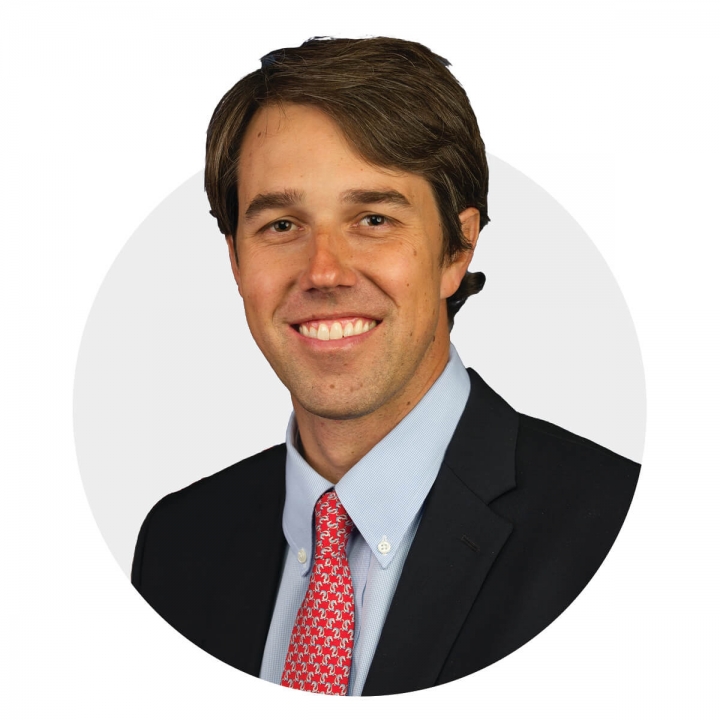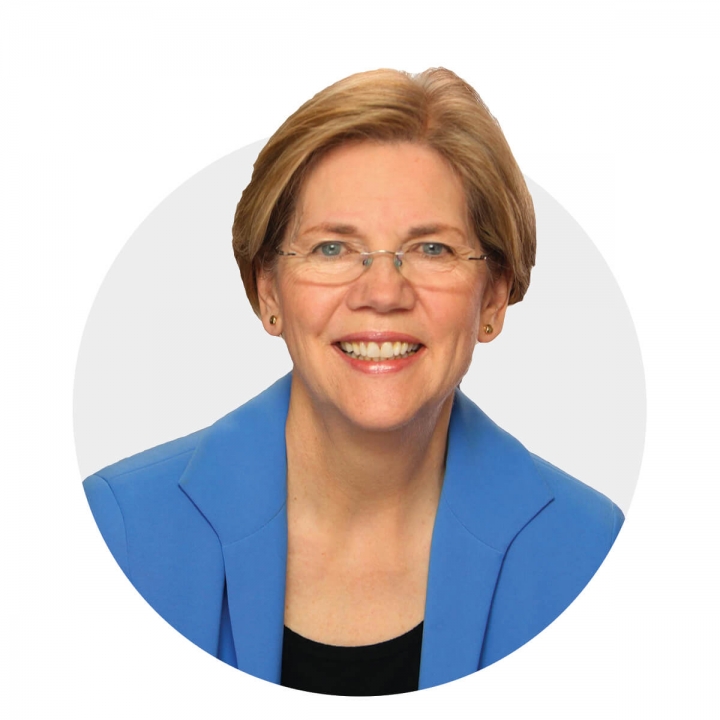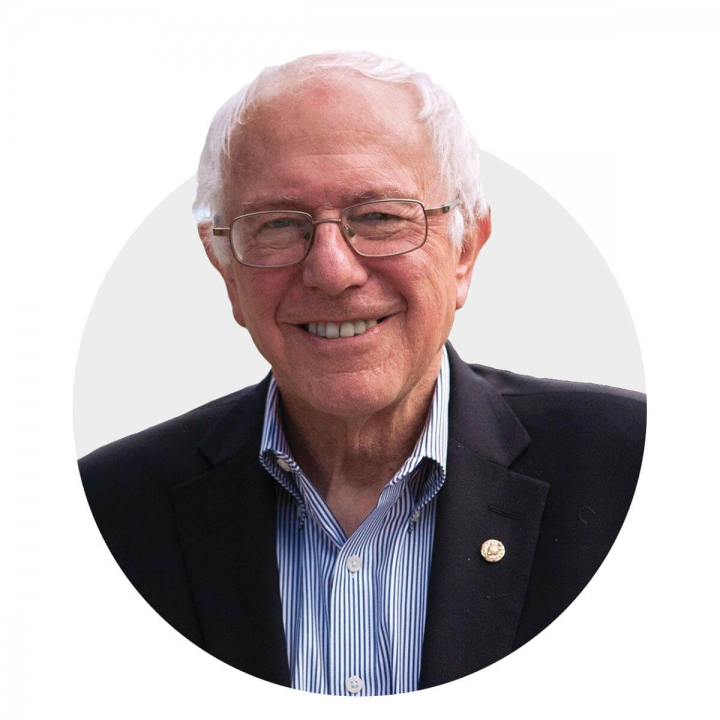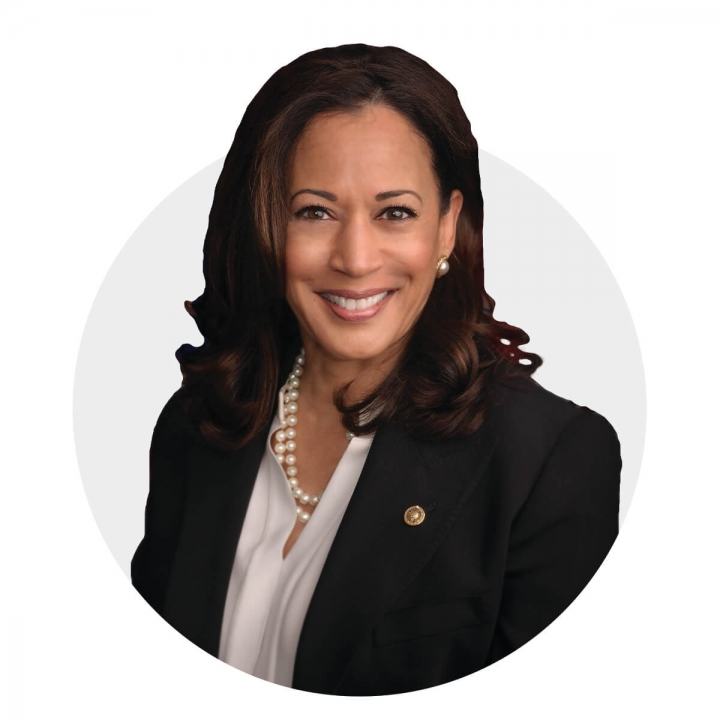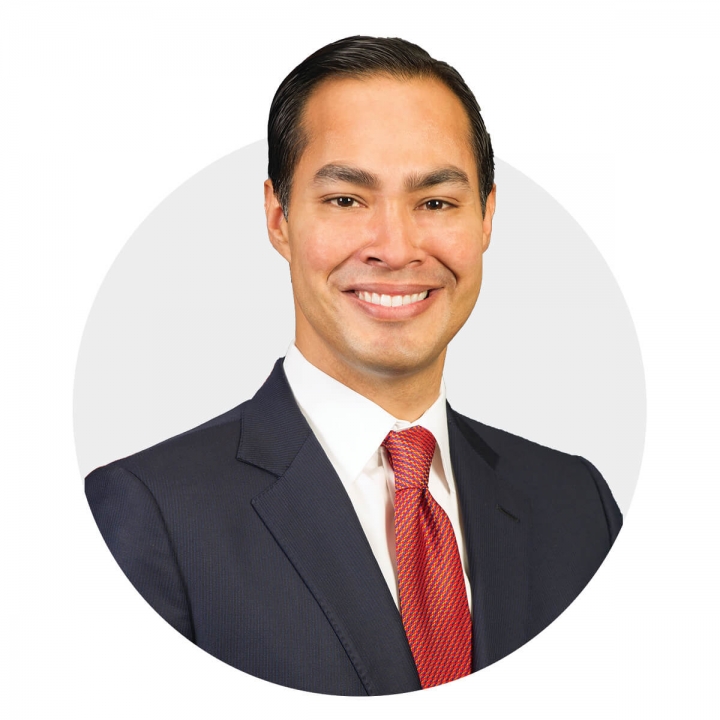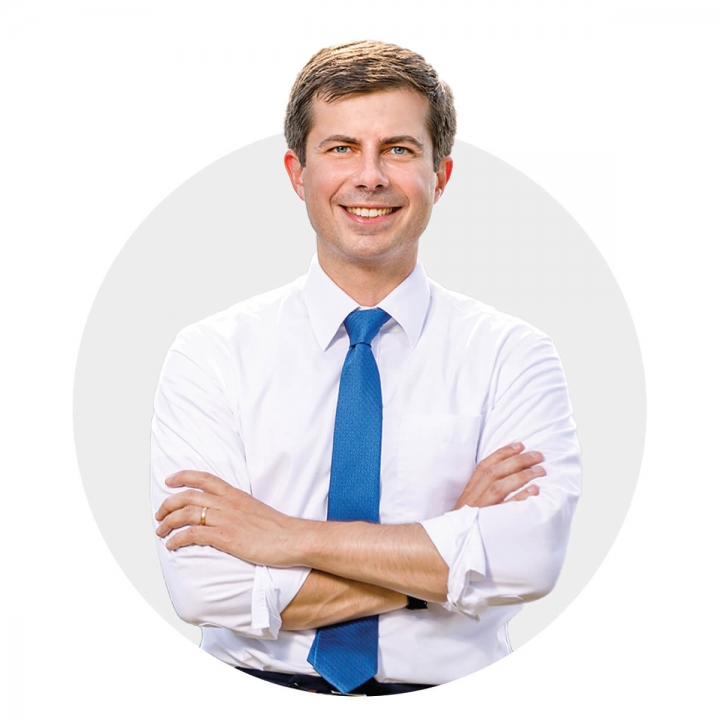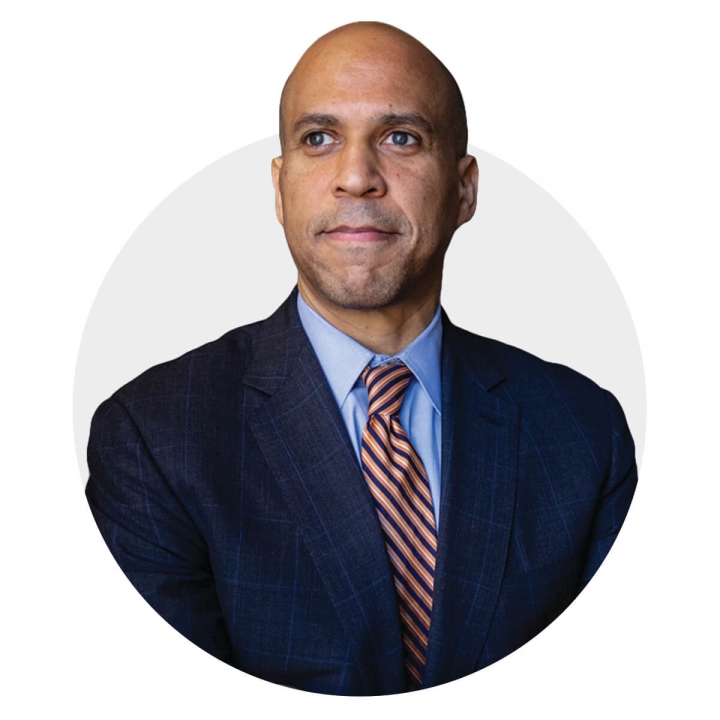Criminal Justice Reform
Since the early 20th century, the United States has pursued an aggressive prohibitionist approach to the regulation of psychoactive drugs. In the early 1960s Richard Nixon implemented the War on Drugs, which allocated funding to accelerate the incarceration of people who use drugs. The War on Drugs was built on decades of stigma, racialized stereotypes, xenophobia, and fears of psychoactive substances manufactured in order to justify regulation of communities of color and leftist political communities. Extending Nixon’s legacy, Ronald Reagan allocated funding for the militarization of law enforcement and expansion of prison construction. Over many decades, the U.S. government has neglected to enact science-based policies to regulate psychoactive substances and has created a system in which predominantly people of color are incarcerated on drug possession charges, families are disrupted through the separation of children from drug using parents, and those diagnosed with substance use disorders are housed in jail and prison cells rather than being provided treatment by medical professionals.
Many political leaders and elected officials have acknowledged that the current system has established a war on people who use drugs, rather than the substances themselves.
Significant reform is needed, and options are many to create a system in which people who use drugs are afforded dignity, respect, freedom, and access to health care.
READ MORE
Tulsi Gabbard on Criminal Justice Reform
Gabbard pledges she would end the war on drugs.
Gabbard pledges to end cash bail.
Gabbard introduced the Ending Federal Marijuana Prohibition Act of 2019, which would limit the application of Federal laws to the distribution and consumption of marijuana and would remove marijuana from the list of Schedule l substances under the Controlled Substances Act.
Gabbard would remove marijuana-related convictions from “otherwise law-abiding Americans.”
Gabbard received increased national attention after criticizing Senator Kamala Harris for her record as former Attorney General for California stating, “... and the people who suffered under your reign as California prosecutor -- you owe them an apology.”
Gabbard would pass the End Money Bail Act, and would provide resources to states to implement a free trial, no money bail system.
Gabbard has pledged to provide resources to states to reduce the jail population, ensure safer communities, and save taxpayer dollars.
Gabbard promises to shut down the school-to-prison pipeline.
Gabbard pledges she will work for clemency reform, including expunging the criminal records of individuals convicted of non-violent drug offenses.
Gabbard says she will work to make house arrest and work release “more viable for non-violent offenders” with the aim to prevent jail and prison entry.
Gabbard would legalize marijuana at the federal level.
Gabbard would ban private prisons.
Gabbard cosponsored the Marijuana Justice Act of 2019, which would economically punish states that do not legalize cannabis and continue to incarcerate or arrest people for cannabis-related offenses.
Gabbard is a cosponsor of the FIRST STEP Act, which aims to reduce the prison population by strengthening evidence-based, rehabilitative programs for those who are incarcerated.
When asked by an audience member at a 2019 CNN Town Hall event if Gabbard would decriminalize all drugs, Gabbard responded by saying that after with meeting with a group of men living in a substance use recovery facility in New Hampshire, she was “impressed by their strength and their resilience,” that we need to end the failed war on drugs, that she feels it is important to identify the root causes of addiction, and discussed her introduction of the Ending the Federal Marijuana Prohibition Act of 2019. CNN host ____ then asked for further detail saying, “So Congresswoman, you’re talking a lot about marijuana, but where do you draw the line on decriminalization, because one of the questions was about all drugs. What do you think about that?” Gabbard replied, “I think that the heart of her question was really recognizing that this is about addiction, not criminalization. Our failed war on drugs has turned everyday Americans who are struggling with substance abuse and addiction and turned them into criminals.” Gabbard did not provide an answer regarding the legalization of all substances.
Gabbard would abolish mandatory minimum sentences for non-violent drug offenses.
Gabbard promises to provide expanded education opportunities, vocational training, and mental health services for individuals in prison.
Gabbard promises to never sign another mandatory minimum sentence into law that removes discretion from judges.
“Our outdated policies on marijuana are turning everyday Americans into criminals, tearing apart families, and wasting huge amounts of taxpayer dollars to arrest, prosecute, and incarcerate people for non-violent marijuana charges.”
“We must stand up against for-profit, private prisons and a criminal justice system that favors the rich and powerful and punishes the poor, locking up people who smoke marijuana and ignoring corps like Purdue Pharma responsible for thousands of opioid-related deaths.”
“…too often we have people in positions of power who don’t care about serving the people. They don’t care about actually serving justice. Instead, they are using their position of power and privilege for their own selfish interests. It’s unfortunately because so much a part of the fabric of our society, that we barely bat an eye when Wall Street bankers who have cheated and gambled and lost billions of our money have not served a day in prison, and they are actually rewarded with million-dollar bonuses. We have big pharmaceutical companies, companies like Purdue Pharma, who have cheated and lied to the American people just so they can proliferate these highly addictive opioid drugs on our streets, driving up their profits, ruining people’s lives, causing the deaths of tens of thousands of people. Yet, what happens to them? They walk away. They get a slap on the wrist. Meanwhile, on the other hand, we have nonviolent drug offenders arrested, thrown in prison, shackled with a criminal record that will follow them wherever they go forever. These are just two examples of this fundamentally unjust system that we have. We have mass incarceration that’s predominantly impacted poor people and communities of color, people’s lives ruined because of one mistake while others whose entire careers are built on predatory behavior and exploitation of the innocent are routinely excused. This is not justice. Justice must be blind… Anyone who’s come into contact with our prison system in any way knows that it is deeply broken. Not only does our prison system fail to fulfill its function of deterring and correcting crime, it is a central driver of a conveyor belt that sucks our youth into an ever-increasing spiral of offenses, punishment, and collateral consequences.”
Read More
Fix our broken criminal justice system
Tulsi Gabbard campaign website, 2019
Justice for All — Tulsi Gabbard at the South Carolina Criminal Justice Forum
MSNBC, October 29, 2019
Beto O’Rourke on Criminal Justice Reform
O'Rourke proposes to end prohibition of marijuana and expunge arrest records of those incarcerated for possessing it, end cash bail, end mandatory minimum sentences for non-violent offenses, eliminate private and for-profit prisons, ensure the formerly incarcerated have a path to reenter our communities.
O'Rourke proposes to reduce all felony drug possession convictions to misdemeanors and apply this retroactively to those who have already suffered unjustly. These actions will save lives now needlessly lost to incarceration, and billions of dollars that can be reinvested into rehabilitative alternatives.
O'Rourke calls for abolishing private and for-profit prisons, ending the war on drugs, ending mandatory minimum sentences for nonviolent drug offenses, reforming the bail process, and providing meaningful reentry to reduce recidivism – rehab services, counseling, banning the box on job applications, and returning the vote.
“We need to not only end the prohibition on marijuana, but also repair the damage done to the communities of color disproportionately locked up in our criminal justice system or locked out of opportunity because of the War on Drugs,” O’Rourke said in a press release. “These inequalities have compounded for decades, as predominantly white communities have been given the vast majority of lucrative business opportunities, while communities of color still face over-policing and criminalization. It’s our responsibility to begin to remedy the injustices of the past and help the people and communities most impacted by this misguided war.”
O’Rourke Unveils a Plan to Legalize Marijuana, End War on Drugs
The Hill | September 19 2019 | Chris Mills Rodrigo
Read More
Beto O’Rourke is Running for President in 2020
Business Insider | Sept 13 2019 | Joe Perticone and Joseph Zeballos-Roig
Texas Should Lead the Way on True Criminal Justice Reform [Opinion]
Houston Chronicle | August 27, 2018 | Beto O’Rourke
Andrew Yang On Criminal Justice Reform
Yang would work to end the use of private prison facilities for federal inmates.
Yang promises to shift drug policy away from punishment and towards treatment.
Yang would push to reconsider harsh felony laws that prevent those who have served their prison term from reintegrating into society.
Yang would implement Universal Basic Income which will dramatically decrease incentives for criminality and improve the functioning of individuals and communities
Yang would work to implement a federal program of pre-trial services that would be made available to states, such as a text message system to remind individuals of their upcoming court dates.
Yang would invest money to fund innovative prison programs that decrease recidivism and increase reintegration.
Yang would invest money to support businesses that hire felons who have served their prison term.
Yang would identify non-violent drug offenders for probation and potential early release.
Yang would work with states to decrease their reliance on cash bail, providing assistance and grants for various programs to increase trial attendance without the need to incarcerate people ahead of conviction.
“People should not be going to jail because they cannot afford to make bail. That’s not the sort of country we are. It should not be criminal to be poor in this country. We can do better by improving the process leading up to a trial date—we should reduce our reliance on bail, and focus on clearer communication and services pre-trial.”
“Our rates of incarceration are 4 times higher than most other industrialized countries, and it’s a national disgrace. People on both sides of the aisle now recognize that our system is badly in need of reform. Our criminal justice system is particularly punitive toward blacks and other minorities. As President I will overhaul the treatment of drug offenses and reduce our rates of incarceration over time.”
Read More
Decrease Pre-Trial Cash Bail
Andrew Yang campaign website, 2019
Elizabeth Warren on Criminal Justice Reform
Warren would end all contracts that the Bureau of Prisons, ICE, and the U.S. Marshals have with private detention providers.
Warren would grant federal public safety funding to states and localities only if they follow the private prisons and detention facilities ban.
Warren pledges to decriminalize mental health crises through Medicare for All and increased access to mental health care services, funding co-responder initiatives that connect law enforcement to mental health care providers and experts, and piloting evidence-based crisis response efforts for people with mental illness.
Warren would Repeal the 1994 Crime Bill.
Warren would eliminate the crack and cocaine sentencing disparity.
Warren pledges to stop criminalizing homelessness, referencing laws that ban behaviors associated with homelessness like sleeping in public or living in vehicles.
Warren would reverse the Trump administration’s policy expanding pre-trial civil forfeiture at the federal level, and would restrict the use of civil forfeiture overall.
Warren would cap criminal debt collection at a percentage of income for low-income individuals, and supports states capping the percentage of municipal revenues derived from the justice system.
Warren would invest in mental and emotional health programs like peer intervention and early warning programs for law enforcement.
Warren would reverse the Jeff Sessions guidance limiting the use of consent decree investigations to investigate police departments.
Warren aims to incentivize states to empower their attorneys general to conduct oversight of police behavior.
Warren would establish federal standards for the use of force for federal law enforcement.
Warren supports limiting qualified immunity for law enforcement officials who are found to have violated the Constitution, and allowing victims to sue police departments directly for negligently hiring officers despite prior misconduct.
Warren would pass legislation to prohibit racial profiling at all levels of law enforcement.
Warren would expand federal funding for body cameras.
Warren would expand federal funding for public defenders.
Warren would provide funding for language and cultural competency training for public defenders.
Warren would establish an advisory board of people who have experienced violence and formerly incarcerated individuals.
Warren would repeal overly restrictive habeas corpus rules in order to make the appeals process easier for individuals who were wrongfully imprisoned.
Warren pledges to break the school-to-prison pipeline.
Warren promises to invest in evidence-based interruption programs, which are aimed at preventing violence and diverting criminal behavior.
Warren would invest in diversion programs for substance abuse disorder.
Warren would legalize marijuana and expunge previous convictions.
Warren would expand options that divert people with substance use disorder from incarceration into programs that provide “real” treatment.
Warren would end cash bail.
Warren would restrict fines and fees levied for individuals before adjudication.
Warren would end the practice of charging fees to incarcerated people for necessary services like phone calls, bank transfers, and health care. Warren would also prevent private companies from profiting off of individuals for incarceration and supervision, including through fees for re-entry, supervision, and probation.
Warren would develop a government database and data collection process in the Justice Department to collect law enforcement data related to fatal police shootings, ethics issues, misconduct complaints, use of force incidents, etc.
Warren would triple funding for the Office of Civil Rights to allow for increased investigations of police departments with the highest rates of police violence and whenever there is a death in custody.
Warren will implement a grant program to fund communities that establish an independent civilian oversight mechanism for their police departments.
Warren would provide incentives for cities and states to increase and improve law enforcement training in areas like implicit bias, discrimination, cultural competency, and engaging with individuals with disabilities.
Warren would end stop-and-frisk by instructing the Justice Department to withhold federal funding from law enforcement agencies that continue to employ it and similar practices.
Warren would eliminate the transfer of military-grade weapons and lethal equipment to local police via the 1033 program, would prohibit local law enforcement from buying military equipment with federal funding, and would create a buy-back program for equipment already in use.
Warren would establish a task force on digital privacy in public safety to establish guidelines for surveillance technology.
Warren would reopen and expand the DOJ’s Office for Access to Justice, which works to expand access to counsel.
Warren would “reduce or eliminate” mandatory minimum sentences.
Warren promises to rein in prosecutorial abuses, including by reducing the use of coercive plea bargaining by DOJ prosecutors at the federal level, establishing open-file discovery, and putting in place responsible standards for evidence gathering. Warren would establish a Commission on Prosecutorial Conduct to make additional recommendations for best practices and monitor adoption of those recommendations, and would create an independent prosecutorial integrity unit to hold accountable prosecutors who abuse their power.
Warren would work to reauthorize the Violence Against Women Act and would provide full funding to eliminate the rape kit backlog.
“Our criminal justice system is broken—and race is right at the center of what’s wrong. Black Americans are more likely to be arrested, wrongfully convicted, and serve longer sentences than white Americans. It’s time to end mass incarceration.”
Ending private prisons and exploitation for profit
Medium, 2019 | Elizabeth Warren
“We need significant reform in both criminal justice and in immigration, to end mass incarceration and all of the unnecessary, cruel, and punitive forms of immigration detention that have taken root in the Trump Administration.”
Ending private prisons and exploitation for profit
Medium, 2019 | Elizabeth Warren
“It’s not equal justice when a kid with an ounce of pot can get thrown in jail, while a bank executive who launders money for a drug cartel can get a bonus. It’s long past time for us to reform our system.”
Ending private prisons and exploitation for profit
Medium, 2019 | Elizabeth Warren
Read More
Ending private prisons and exploitation for profit
Medium, June 21, 2019 | Elizabeth Warren
Bernie Sanders on Criminal Justice Reform
Sanders co-sponsored the "Recidivism Reduction and Second Chance Act of 2007
Sanders voted in favor of the 1994 crime bill authored by Joe Biden. He has since stated that this was due to specific provisions in the bill which he favored, including the Violence Against Women Act and a 10-year assault weapons ban. At the time, Sanders stated, “I have a number of serious problems with the Crime Bill, but one part of it that I vigorously support is the Violence Against Women Act. We urgently need the $1.8 billion in this bill to combat the epidemic of violence against women on the streets and in the homes of America.”
Sanders voted for an amendment to the 1994 crime bill to ban the federal death penalty.
Sanders would legalize marijuana and vacate and expunge past marijuana convictions.
Sanders would raise the threshold for when drug charges are federalized, as federal charges carry longer sentences.
Sanders would ban for-profit prisons.
Sanders would incentivize states and localities to end police departments’ reliance on fines and fees for revenue.
Sanders promises to “stop excessive sentencing with the goal of cutting the incarcerated population in half.”
Sanders would reverse the Trump administration’s guidance on the use of death penalty drugs with the goal of ending the death penalty at the state level.
Sanders would abolish the death penalty.
Sanders would end cash bail.
Sanders would end “three strikes” laws.
Sanders would expand the use of sentencing alternatives, including community supervision and publicly funded halfway houses. This includes funding state-based pilot programs to establish alternatives to incarceration, including models based on restorative justice and free access to treatment and social services.
Sanders would make expungement broadly available.
Sanders would remove legal and regulatory barriers and facilitate access to services for people returning home from jail or prison.
Sanders would create a federal agency responsible for monitoring re-entry.
Sanders would enact fair chance licensing reform to remove unfair restrictions on occupational licensure based on criminal history.
Sanders would guarantee jobs and free job training at trade schools and apprenticeship programs for people leaving jail or prison.
Sanders would decriminalize truancy for all youth and their parents.
Sanders would end solitary confinement for youth.
Sanders would fund states and municipalities to create civilian corps of unarmed first responders for low-level incidents.
Sanders would ban the prosecution of children under the age of 18 in adult courts.
Sanders would triple congressional spending on indigent defense, to $14 billion annually.
Sanders voted against the 1991 crime bill stating, “This is not a crime prevention bill. This is a punishment bill, a retribution bill, a vengeance bill.”
Sanders voted in favor of at least one amendment to the 1994 crime bill to allocate 10.5 billion more in grants to states for prison construction. The Sanders campaign has said this was in an effort to “strip out” other language which would have expanded the crimes for which individuals could be sentenced.
Sanders supported the Smarter Sentencing Act of 2014, which would have adjusted federal mandatory sentencing guidelines for a number of crimes in an effort to reduce the size of the current U.S. prison population. Namely, it would have reduced mandatory sentences for drug offenses, would have expanded the ability of non-violent offenders to reduce their sentences, and would have enabled federal prisoners to seek retroactive sentence adjustment under the Fair Sentencing Act of 2010.
Sanders would institute a full review of the current sentencing guidelines and end the sentencing disparity between crack and cocaine.
Sanders supports removing questions regarding conviction histories from job and other applications.
Sanders would minimize costs for incarcerated individuals by making prison phone calls and other communications free, and would audit the practices of commissaries.
Sanders would ensure that diversion, community supervision, or treatment programs are free.
Sanders would end mandatory sentencing minimums.
Sanders promises to improve law enforcement accountability by banning the use of facial recognition software for policing; conducting a U.S. Attorney General’s investigation whenever someone is killed in police custody; establish a federal no-call policy; mandating criminal liability for civil rights violations resulting from police misconduct; creating federal standards for the use of body cameras; providing grants for cities and states to establish civilian oversight agencies; creating a federal database of police use of deadly force; ending federal programs that provide military equipment to local police forces; rescinding former Attorney General Jeff Sessions’ guidance on consent decrees; and revitalizing the use of DOJ investigations, consent decrees, and federal lawsuits to address systemic constitutional violations by police departments.
Sanders would reinstate a federal parole system and end truth-in-sentencing. People serving long sentences will undergo a “second look” process to make sure their sentence is still appropriate.
Sanders would “invigorate and expand” the compassionate release process so that people with disabilities, the sick and elderly are transitioned out of incarceration whenever possible.
Sanders would create an independent clemency board in the White House that would be removed from the Department of Justice.
Sanders would enact a Prisoner Bill of Rights that guarantees ending solitary confinement; access to free medical care in prisons and jails, including professional and evidence-based substance abuse and trauma-informed mental health treatment; incarcerated trans people have access to all the health care they need; access to free educational and vocational training (this includes ending the ban on Pell Grants for all incarcerated people without any exceptions; living wages and safe working conditions, including maximum work hours, for all incarcerated people for their labor; the right to vote while incarcerated; ending prison gerrymandering, ensuring incarcerated people are counted in their communities, not where they are incarcerated; establishment of an Office of Prisoner Civil Rights and Civil Liberties within the Department of Justice to investigate civil rights complaints from incarcerated individuals and provide independent oversight to make sure that prisoners are housed in safe, healthy, environments; protection from sexual abuse and harassment, including mandatory federal prosecution of prison staff who engage in such misconduct; access to their families — including unlimited visits, phone calls, and video calls; and a determination for the most appropriate setting for people with disabilities and safe, accessible conditions for people with disabilities in prisons and jails.
Sanders would bar criminal charges for school-based behavior that would not otherwise be criminal.
Sanders would use Supreme Court’s Olmstead decision to challenge states that have failed to adequately support the voluntary, community-based mental health services that can divert people with mental illness from ending up in the criminal justice system.
Sanders would prevent juveniles from being housed in adult prisons.
Sanders would ban the practice of any law enforcement agency benefiting from civil asset forfeiture.
Sanders would abolish long mandatory minimum sentences and life-without-parole sentences for youth.
Sanders would mandate and fund police officer training on implicit bias, cultural competency, de-escalation, crisis intervention, adolescent development, and interacting with individuals with disabilities.
“Look, the first thing we have to recognize is that our criminal justice system is not just broken. It is deeply, deeply, deeply broken. It is a dysfunctional system, which is punishing millions of people unnecessarily.”
Then Representative Bernie Sanders while speaking on the floor of the U.S. House of Representative floor on April 13, 1994 stated, “It is my firm belief that clearly there are people in our society who are horribly violent, who are deeply sick and sociopathic, and clearly these people must be put behind bars in order to protect society from them. But it is also my view that through the neglect of our government and through a grossly irrational set of priorities, we are dooming today tens of millions of young people to a future of bitterness, misery, hopelessness, drugs, crime, and violence. And, Mr. Speaker, all the jails in the world — and we already imprison more people per capita than any other country — and all of the executions … in the world will not make that situation right… We can either educate or electrocute. We can create meaningful jobs, rebuilding our society, or we can build more jails. Mr. Speaker, let us create a society of hope and compassion, not one of hate and vengeance.”
Read More
Justice and Safety for All
Bernie Sanders campaign website, 2019
Bernie Sanders unveils plan to overhaul country’s ‘dysfunctional criminal justice system’
CNN, August 18, 2019 | Devan Cole
Bernie Sanders On His Criminal Justice Overhaul Plan
NPR, August 18, 2019 | Lulu Garcia-Navarro
Bernie Sanders has dodged criticism for crime bill vote while others have not
NBC, June 23, 2019 | Heidi Przybyla
Bernie Sanders voted for the 1994 tough-on-crime law. But it’s complicated.
Vox, April 8, 2016 | German Lopez
Amy Klobuchar on Criminal Justice Reform
Klobuchar would create a position in the White House that exists outside of the Department of Justice to advise the president on criminal justice reform issues.
Klobuchar would create a bipartisan clemency advisory board that would include victim advocates and prison and sentencing reform advocates to investigate and review requests for clemency.
As a prosecutor in Hennepin County, Klobuchar pursued harsher penalties for repeat offenses, including drunk driving, failure to pay child support, and more.
Klobuchar will direct the Department of Justice to decline to renew or reduce the scope of contracts for private prisons when the contract reaches its end, aiming to phase out the use of private prisons.
Klobuchar previously served as a prosecutor for Hennepin County in Minnesota.
When data showed that a local drug court in Hennepin County was sentencing many drug offenders to probation instead of prison, Klobuchar called the results “unacceptable,” adding, “We believe that they should serve a lengthier sentence instead of going to the workhouse and that they should be behind bars.” Klobuchar was a prosecutor in Hennepin County at the time.
Prosecutors criticize Drug Court
Star Tribune, July 13, 2006
Read More
Klobuchar: On criminal justice reform, it’s time for a second step
CNN, April 5, 2019 | Amy Klobuchar
Senator Amy Klobuchar Releases Plan of More Than 100 Actions for Her First 100 Days as President
Medium, June 18, 2019 | Amy for America
Amy Klobuchar’s record as a “tough on crime” prosecutor, explained
Vox, February 25, 2019 | German Lopez
Kamala Harris on Criminal Justice Reform
In 2004, as District Attorney of San Francisco, Harris refused to seek the death penalty against a man convicted of shooting police officer Isaac Espinoza. She faced opposition from fellow Democrats, including Senator Dianne Feinstein (D-CA) who called for the death penalty at the officer’s funeral. Following that incident, she received almost no support from police groups during her first run for attorney general in 2010.
Harris created the “Back on Track” program which allowed first-time drug offenders, including drug dealers, to get a high school diploma and a job instead of prison time. Adams, Harris’s spokesperson, noted that the program started in 2005, “when most prosecutors were using a ‘tough on crime’ approach.”
Harris promises to end the War on Drugs.
Harris would create grant programs to provide services to those most adversely impacted by the War on Drugs, provide states and localities with funds to make loans to assist small businesses in the marijuana industry, and provide funds for programs that minimize marijana licensing and employment barriers.
Harris is a cosponsor of the Justice Safety Valve Act, which would eliminate mandatory minimums by allowing judges to issue sentences below the mandatory minimum.
Harris would remove the clemency process from the Department of Justice due to inherent conflicts of interest.
Harris would create a new National Criminal Justice Commission to study state and federal criminal justice systems.
Harris would end the use of private prisons.
Harris would work to end juvenile incarceration, life sentences of children, the transfer of children to adult prisons, solitary confinement for children, and criminal charges for school-based disciplinary behavior.
Harris would mandate that federal prisons provide educational and vocational training, and mental health and addiction treatment.
Harris supports ban the box.
Harris introduced the Fair Chance at Housing Act of 2019 with Rep. Alexandria Ocasio-Cortez, which helps to remove barriers to obtaining federal housing assistance for individuals with criminal records.
Harris would create a National Police Systems Review Board.
Harris would double the size of the DOJ’s Civil Rights Division.
Harris would end the use of fines and fees that criminalize the poor, including ending suspension of driver’s licenses for unpaid fines.
Harris would increase prosecutorial accountability and would increase support for public defenders.
Harris pledges to end mass incarceration, and invest in community-based programs to reduce crime and promote safe and healthy communities.
Harris promises to make significant federal investments into evidence-based, non-carceral social supports and programs to improve public safety and reduce violence, including investing in jobs, job training, housing, transportation, food security, education, medical care and mental health care.
Harris will legalize marijuana on the federal level and expunge marijuana convictions.
Harris pledges to invest in reducing the incarceration of women convicted of non-violent offenses.
Harris would end mandatory minimums at the federal level.
Harris would form clemency/sentencing review units to significantly increase the use of clemency.
Harris would end the federal crack and powder cocaine sentencing disparity.
Harris pledges to reform community supervision by shortening the length of probation and ending jail time for technical violations of community-based supervision.
Harris would create a Bureau of Children and Family Justice.
Harris would invest in Back-on-Track programs.
Harris would mandate that federal prisons provide a reentry educational course.
Harris would end federal bans on formerly-incarcerated and arrested individuals access to public housing, student loans, SNAP and professional work licenses.
Harris supports automatic expungement and sealing of offenses that are not serious or violent after 5 years.
Harris supports independent investigations of officer-involved shootings.
Harris would end the death penalty and solitary confinement.
Harris would reinstate President Obama’s executive order to de-militarize police departments.
Harris would end money bail.
“I’ve been consistent my whole career. My career has been based on an understanding, one, that my duty as a prosecutor was to seek and make sure that the most vulnerable and voiceless among us are protected, and that is why I have personally prosecuted violent crime that includes rape, child molestation, and homicide. And, I have also worked my entire career to reform the criminal justice system, understanding, to your point, that it is deeply flawed and in need of repair, which is why, as attorney general for example, I led the Department of Justice, which is the largest state department of justice in any state, in California and implemented the first of its kind in the nation, implicit bias and procedural justice training for police officers. It is why I created the first in the nation for any department of justice an open data initiative that we named “Open Justice” for the first time making transparent and showing the public statistics around deaths in custody, arrest rates by race, and making that information available to the public. I instituted a policy around requiring the agents who worked in my division, which is the first of its kind for a state agency, to wear body cameras. I created an initiative back when I was DA, and this was when, by the way, this was the 90’s and the early 2000’s, where you could talk to DAs around the country and you’d mention the word re-entry, and they didn’t know what you were talking about. This was when there was a “tough-on-crime” mentality, and I created one of the first in the nation initiatives that was focused on re-entering former offenders by getting them jobs, and training, and counseling, and it ended up being something that, thankfully, in these ensuing 15 years, is something that is regularly talked about by district attorneys, but back when we created this, that was not happening. On the issue of the death penalty, I am personally opposed to the death penalty. I’ve always been opposed to the death penalty, and that’s not gonna change.”
Town Hall with Senator Kamala Harris
CNN, January 28, 2019
Read More
Kamala Harris Was Not a ‘Progressive Prosecutor’
The New York Times, January 17, 2019 | Lara Bazelon
Kamala’s Plan to Transform the Criminal Justice System and Re-Envision Public Safety in America
Candidate Website
Kamala Harris’s criminal justice reform plan, explained
Vox, September 9, 2019 | German Lopez
Julián Castro on Criminal Justice Reform
Castro promises to end the War on Drugs.
Castro pledges to increase security at U.S. ports of entry to prevent the trafficking of drugs like fentanyl into the U.S. When asked in a Nov. 2019 conversation with IHRC to expand on this promise, Castro responded, “Well I think that again, we need to strike a strong balance to the extent that there’s a usefulness for fentanyl in some instances than similar substances. I mean, I want to make sure that they’re available, but about three or four months ago we had the largest bust of fentanyl in the nation’s history, which was 254 pounds that came through a port of entry in Arizona. What I see is a lot of smuggling through these ports of entry, illegal fentanyl, and I believe that’s one way, that’s one area, where we can do a better job of preventing that entry into the United States, that we can be more vigilant. I see that still as consistent with ensuring that people have what they need and taking a change in direction in cracking down on the individual, which has really been a large part of the war on drugs is penalizing the individuals who end up in the grips of usage and often suffer from that. I don't believe in that approach, but I also don’t believe in substances, illegal substances coming through ports of entry that shouldn’t be coming through there. So, I think that we can do both of those things.”
Castro promises to eliminate the sentencing disparity between crack and powder cocaine, and will order a federal review of all other sentencing guidelines to address other possible racial disparities in sentencing.
Castro would reform the plea system, allowing for more support for defendants.
Castro would allow individuals up to the age of 21 to be tried as juveniles.
Castro would repeal the 1994 crime bill’s mandatory minimums and three strikes laws.
Castro would create a new $500 million federal grant program to invest in public defenders.
Castro would work to end abusive civil asset forfeiture.
Castro would ban the use of for-profit contractors in prisons.
Castro would abolish the death penalty.
Castro would strengthen enforcement of the Prison Rape Elimination Act (PREA).
Castro supports reforms to end the practice of shackling mothers during delivery of a child.
Castro would direct the Department of Justice to adequately enforce all laws and regulations to protect the rights of disabled prisoners, require prisons to have designated staff empowered to protect the needs of disabled prisoners, require publicly available data collected on the condition of disabled prisoners, and pass legislation reducing the number of disabled people incarcerated, including by increasing access to criminal justice diversion programs, and providing community-based mental health services.
Castro would repeal the Prison Litigation Reform Act, which significantly restricts prisoners’ ability to file lawsuits based on the conditions of their confinement.
Castro supports improving educational opportunities for juvenile and adult individuals who are incarcerated, such as increasing access to high-level classes, and credit-recovery opportunities.
Castro would promote non-armed responses to 911 calls by establishing partnerships between mental health units and other first responders, including crisis intervention services by medics, counselors, and social workers, rather than armed police officers.
Castro would work to increase housing assistance for formerly incarcerated people, and would pass legislation requiring States that receive benefits to lift the lifetime ban on Supplemental Nutrition Assistance Program (SNAP) and Temporary Assistance for Needy Families (TANF) benefits for people with felony drug convictions.
Castro would establish an independent commission to review cases of non-violent offenders and make continuing recommendations to the President on clemency.
Castro would ban the use of deadly force unless there is an imminent threat to the life of another person and all other reasonable alternatives have been exhausted.
Castro favors legalization of marijuana, and believes a key component of marijuana legalization is the expungement of marijuana-related charges for individuals with existing charges on their records.
Castro believes there should be harsher penalties for individuals who sell drugs or traffick drugs into the U.S.
Castro would end cash bail, would support compensation for individuals who are detained pretrial but are later released or acquitted, and would limit pre-trial detention.
Castro promises to end the criminalization of youth by setting a stricter standard for juvenile incarceration, and limit the number of separations of children from their families. Castro would support state efforts to abolish youth prisons, and would redirect funds to community-based, accessible, trauma-informed, and developmentally appropriate programs. Castro would also fund the DOJ and Department of Education to track and respond to civil rights allegations in the youth justice system.
Castro would work to end the practice of trying minors as adults and holding minors in adult facilities.
Castro would reopen and expand the Office for Access to Justice.
Castro would work to improve accessibility within the court system to assist individuals with transportation and to improve accommodations for individuals with disabilities.
Castro would close all for-profit prisons and detention centers.
Castro would guarantee fair wages for any labor performed while incarcerated.
Castro would ban the use of solitary confinement.
Castro would require free access to reproductive health care for incarcerated people.
Castro would guarantee access to gender-confirmation surgery and appropriate accommodations for trans people who are incarcerated.
Castro promises to create an advisory council of currently and formerly incarcerated people, tasked with advising on better conditions within federal prisons and how to prevent incarceration in the first place.
Castro would develop “Second Chance Centers… a single place in a community where formerly incarcerated individuals can get all the information and help they need to re-engage in society.”
Castro pledges to end the discrimination against formely incarcerated people in admissions and financial aid, including repealing restriction on Pell Grant eligibilty for both current and formerly incarcerated individuals.
Castro would end qualified immunity for police officers, making it easier to hold offending officers accountable under criminal and civil law and create a national public database tracking police officer misconduct.
Castro supports removing questions regarding conviction histories from job and other applications.
Castro supports automatic restoration of voting rights for felons who have served their sentences, and allowing formerly incarcerated persons to participate on juries.
Castro would pass legislation ending racial profiling and stop-and-frisk policies, require police departments to screen for prejudice and demonstrate accountability for all instances of biased policing.
“You can’t tell me that if police can apprehend Dylann Roof –the person who shot up that church in Charleston, South Carolina– without hurting him, that Eric Garner and Tamir Rice and Jason Pero and Sandra Bland shouldn’t still be alive today, too.”
Full Video: Sec. Julian Castro at MoveOn’s Big Ideas Forum
MoveOn, June 2, 2019
“I would also restrict or even eliminate qualified immunity. Qualified immunity is a doctrine in law that has shielded police officers that engage in excessive force from being sued civilly successfully. And you know the doctrine has completely gone off the rails and protected very bad behavior. We need to change that.”
Julian Castro – IHRC 2020 Democratic Presidential Candidate Forum on the Overdose Crisis – Event 2
November 23, 2019
“We need a new approach to criminal justice, one that prioritizes prevention, not prison, creates a restorative justice system, heals the wounds of incarceration, and ensures every person has an effective first chance… Drug use and addiction is primarily a public health challenge. In dealing with it primarily as a criminal issue, we have shattered communities, strengthened criminal groups, and locked up those who did not deserve it. As president, I will bring our misguided War on Drugs to an end.”
The First Chance Plan
Julian Castro campaign website, 2019
“So, I’ve come up with a plan to try and fix that [racial disparities in policing]…because I don’t believe that the color of your skin, or whether you live in Cedar Rapids, Iowa or San Francisco, California should determine whether you have one standard or another. I think that a police officer should have the same standard for when they’re going to discharge their weapon and potentially kill somebody… Because what I want is that no matter who you are in the country, no matter the color of your skin, what neighborhood you grow up in, and how much money you have or don’t have, when you see a police officer, you feel safer. We can’t say that. Not everybody can say that right now in our country. I want to make sure that Washington is a strong partner with local police departments and state governments so that everybody can feel that way. And, our police officers, a lot of whom do great work and deserve credit for it, they can make sure they’re as safe as possible and they’re able to carry out their duty.”
Julian Castro – IHRC 2020 Democratic Presidential Candidate Forum on the Overdose Crisis – Event 2
November 23, 2019
Read More
The First Chance Plan
Julian Castro campaign website, 2019
Julián Castro has an ambitious plan to fix American policing
Vox, June 4, 2019
P.R. Lockhart
People First Policing Plan
Julian Castro campaign website, 2019
Julian Castro – IHRC 2020 Democratic Presidential Candidate Forum on the Overdose Crisis – Event 2
November 23, 2019
Julian Castro presidency would make sure patients who actually need opioids could get them
Blake Dodge, November 30, 2019 | Newsweek
Julian Castro Open To Decriminalizing Drugs And Endorses Safe Consumption Sites
Kyle Jaeger, November 29, 2019 | Marijuana Moment
IHRC discusses drug policy with presidential candidates
Brian Tabick, November 23, 2019 | KCRG
Harris highlights contrasts with rivals Sanders, Warren
O. Kay Henderson, November 25, 2019 | Radio Iowa
Pete Buttigieg on Criminal Justice Reform
Buttigieg pledges to end cash bail.
Buttigieg plans to eliminate private prisons.
Buttigieg wants to eliminate mandatory minimum sentences.
Buttigieg pledges to commute the sentences of people who are incarcerated in the federal system by establishing an independent clemency commission outside the Department of Justice.
Buttigieg would abolish capital punishment.
Buttigieg would work to eliminate arrests and incarceration as punishment for failing to pay legal financial obligations, require states to account for a person’s ability to pay before levying fines and fees, and end practices that create additional economic burdens, such as suspending driver’s licenses for failing to pay criminal justice debts.
Read More
What Pete Buttigieg Has and Hasn’t Done About Homelessness in South Bend
The New Yorker, June 19, 2019 | Charles Bethea
The Full Plan – Healing and Belonging in America: A Plan to Improve Mental Health Care and Combat Addiction
August 23, 2019
Cory Booker on Criminal Justice Reform
Booker is the author of the 2018 First Step Act, which aims to reduce federal mass incarceration by reducing and restricting enhanced sentences for prior drug felonies, and through evidence-based treatment for opioid and heroin use. This was signed into law by President Trump.
In March 2019, Booker introduced the Next Step Act, which includes a number of criminal justice reforms, including reducing mandatory sentences for non-violent drug offenses, banning racial and religious profiling, removing questions regarding conviction histories from job and other applications, and expunging records for marijuana-related charges.
Booker would eliminate the sentencing disparity between crack and powder cocaine.
Booker pledges to reinvest in the communities most impacted by the failed War on Drugs.
Booker would expand training for law enforcement officers on implicit racial bias, de-escalation and use-of-force.
Booker would decriminalize marijuana and expunge records for marijuana-related charges
Booker would extend clemency to individuals serving excessive sentences for nonviolent drug offenses.
Booker would end mandatory minimums for nonviolent drug offenses.
Booker supports removing questions regarding conviction histories from job and other applications.
Booker would prohibit racial and religious profiling and improve the reporting of police use-of-force incidents.
Booker would “absolutely” consider mass pardons or commutations for federal marijuana offenses.
“You can tell a lot about a country by who it incarcerates. Some countries imprison journalists. Others imprison political opponents. We imprison the poor, the addicted, the mentally ill, the survivors of abuse and sexual assault, and black and brown people. Our broken criminal justice system is a cancer on the soul of our nation that preys upon our most marginalized populations. It’s time we developed a cure.”
Cory Booker: It’s time for the next step in criminal justice reform
The Washington Post, March 10, 2019 | Cory Booker
Read More
Cory Booker is running for president in 2020. Here’s everything we know about the candidate and how he stacks up against the competition.
Business Insider, September 13, 2019 | John Haltiwanger and Joseph Zeballos-Roig
Criminal Justice
Cory Booker campaign website, 2019
Cory Booker takes the lead on criminal justice reform in 2020 campaign with new bill
CNBC, March 7, 2019 | Carmin Chappell
Cory Booker: It’s time for the next step in criminal justice reform
The Washington Post, March 10, 2019 | Cory Booker
Booker showcases pragmatic side in town hall
Politico, March 28, 2019 | Nolan D. McCaskill


